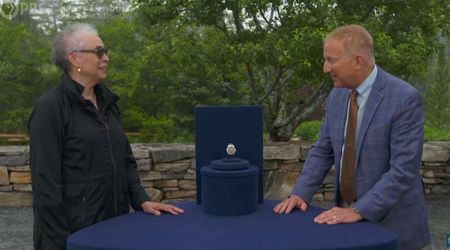Getting Calls About Your Arrest? It Might Just be Another Scam

Tempting people with greed or using fear to extort money from them are the two most common strategies that have been deployed by scammers since time immemorial, even as tactics change. When it comes to phone scams, a disconcerting trend has emerged, with scammers adopting a new and deceptive tactic, by posing as officers or court officials. Their latest ploy involves threatening unsuspecting individuals with arrest for allegedly missing jury duty, a scheme that has prompted the South Dakota Unified Judicial System to issue a stern warning to the public.

After digging deeper into the scam, it was revealed that a sophisticated operation had been designed to exploit the fear and urgency associated with legal matters. The fraudulent call typically starts with the scammer asserting that the recipient has failed to report for jury duty. To avoid the purported impending arrest, the victim is coerced into making a payment or purchasing a prepaid card.
The State Court System, in response to this alarming development, stated, "South Dakota courts do not engage in such practices. Not only do they not call prospective jurors, but they certainly do not demand money or personal information over the phone. "

In recent times, scammers have been increasingly impersonating law enforcement officials, raising concerns among authorities about the convincing nature of these fraudulent calls. "Scammers are becoming increasingly sophisticated in their tactics. It's disheartening to see people being targeted and coerced under the guise of the legal system," a State Court System official said.
In a similar incident, individuals received calls from scammers posing as U.S. Marshals. The scammers then coerced victims into paying fines under the threat of arrest, citing offenses such as identity theft. They claimed that victims could avoid arrest by withdrawing cash and transferring it to the government via Bitcoin ATMs.
They even provided victims with badge numbers, names of supposed law enforcement officials and judges, and addresses of courthouses. To further deceive victims, they spoofed the phone number to make it appear as though the call was truly coming from a government agency or court.

The State Court System offered a valuable tip to avoid falling victim to this insidious scam. "Never give money or personal information to someone you don’t have ties with," it warned. In addition to that, if an unknown caller exerts pressure or communicates in a way that raises suspicion, it's recommended to trust one's instincts and terminate the call.
In case doubts linger regarding the legitimacy of a call, the State Court System advises verifying the information with appropriate law enforcement or court officials.

It's important to remember that legitimate law enforcement agencies will never request credit/debit card information, gift card numbers, wire transfers, bank routing numbers, or ask for Bitcoin deposits for any purpose.
As communities grapple with the increasing sophistication of these scams, local law enforcement agencies and court systems are actively collaborating to raise awareness. Law enforcement officials have called for awareness, so that people are able to spot warning signs while interacting with fraudulent callers.





















